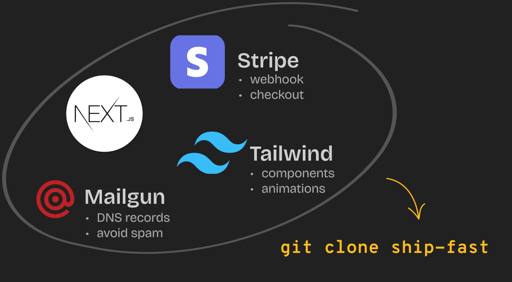Mozilla warns Germany could soon declare ad blockers illegal
-
Ad blockers do literally the reverse, they don't inject anything, they sit on the outside and prevent unwanted resources from loading.
Also it's fully legal for the end user to modify stuff on their own end. And the information in the filter about the website structure is functional, not expressive - no copyright protection of function.
To claim copyright infringement for not rendering a website as intended due to filters also means it would be infringement to not render the website correctly for any other reason - such as opening the website with an unsupported browser, or on hardware with limited support, or with a browser with limited capabilities - or why not because you're using accessibility software!
Also it’s fully legal for the end user to modify stuff on their own end
Although I 100% agree with you, the whole premise of this post is that laws can change. What's legal now is not a good basis to say "it's legal, so it can't be illegal later on".
-
You can make ad blockers illegal, but you can't actually enforce it unless you have a dystopian totalitarian government with a secret police to track down anyone using one. Does Germany have that?
Working on it
-
I'm sure you know but for any onlookers:
This is not a meme, this was in a patent by Sony. -
I know I'm gonna get a lot of hate for this because everyone here despises ads, but I can see an argument for it. I don't know if it is legaly sound, but morally, it boils down to the fact that you are literally using a service without paying for it. The website is offering you a product and the payment is ads. If you don't want to pay for it, don't use it, otherwise you really are just stealing it (even if that "stealing" costs very little to the site). I personally use an adblocker and agree that ads on most sites are obnoxious, but I also feel like people make adblockers out to be completely black and white, which they are not.
the types of ads that are being blocked are effectively a type of malware
-
cross-posted from: https://lemmy.ml/post/34873574
This is grounded in the assertion that a website’s HTML/CSS is a protected computer program that an ad blocker intervenes in the in-memory execution structures (DOM, CSSOM, rendering tree), this constituting unlawful reproduction and modification.
Dumbest fucking thing I've ever heard of.
Will they make Reader Mode in browsers illegal, too?
What about "dark mode" or "resize font" when the website doesn't offer those accessibility features?
Will they make the "mute" function on browser tabs illegal, since it modifies the website author's intention to play audio upon page load?
I will continue to block ads, spyware, trackers, unwanted elements, popups, and social media links, "illegal" or not.
-
I know I'm gonna get a lot of hate for this because everyone here despises ads, but I can see an argument for it. I don't know if it is legaly sound, but morally, it boils down to the fact that you are literally using a service without paying for it. The website is offering you a product and the payment is ads. If you don't want to pay for it, don't use it, otherwise you really are just stealing it (even if that "stealing" costs very little to the site). I personally use an adblocker and agree that ads on most sites are obnoxious, but I also feel like people make adblockers out to be completely black and white, which they are not.
'using a service without paying for it' alright. do you want us to sign contractual agreements before visiting websites? Most companies want people to use mobile apps these days because of the legal implications of editing those apps. The ads are baked in.
it comes down to the philosophy of internet systems you ascribe to.
I'd like to see your reaction to that television patent that forces people to stand up and clap after the advertisement.
I'd like to see your reaction to me placing sticky notes on my physical screen over the advertisement's location such that I never perceive the content.
I'd like to see you kneel, subordinate human worker. Do my bidding. Watch my ads. It's the moral thing to do.
-
and if the ad blocker modified the byte code (either directly or by modifying the source), then that would constitute a modification of code and hence run afoul of copyright protections as derivative work.
Insanity - modifying code that runs on your machine in no way is even remotely related to copyright.
Cracking code/verification systems on your computer is also code running on your system, there are literally people in prison for running the code that cracks a program, BECAUSE of copyright laws.
So I'm not sure your setting how bad it already is for users.
(What should be, is not what we are talking about, for the record)
-
'using a service without paying for it' alright. do you want us to sign contractual agreements before visiting websites? Most companies want people to use mobile apps these days because of the legal implications of editing those apps. The ads are baked in.
it comes down to the philosophy of internet systems you ascribe to.
I'd like to see your reaction to that television patent that forces people to stand up and clap after the advertisement.
I'd like to see your reaction to me placing sticky notes on my physical screen over the advertisement's location such that I never perceive the content.
I'd like to see you kneel, subordinate human worker. Do my bidding. Watch my ads. It's the moral thing to do.
I'm not advocating for you being forced physically to watch ads, I'm saying that as it stands, ads are the payment method and you actively blocking them means you're not paying for what you're using. I'm not criticising people for that, I'm simply stating a fact. If everyone on the internet was to use adblockers, most of the web would die out, and first to die would be actually useful sites that provide helpful information that they invested time and money into making, such as news, review sites, etc. Perhaps the threat of adblockers itself is benefitial for the internet as it might force websites to find alternate, better payment methods, but I don't see what you could replace ads with since people won't be willing to pay a monthly subscription for every site they visit, and most people won't pay for donations if you try a donations based model.
-
cross-posted from: https://lemmy.ml/post/34873574
Eh, next try (Nr. 7? 8?) of Axel Springer, a tabloid that wanted to declare their site as a protected piece of art you aren't allowed to modify (block stuff).
-
Had that
longer in the eastern part
-
I'm not advocating for you being forced physically to watch ads, I'm saying that as it stands, ads are the payment method and you actively blocking them means you're not paying for what you're using. I'm not criticising people for that, I'm simply stating a fact. If everyone on the internet was to use adblockers, most of the web would die out, and first to die would be actually useful sites that provide helpful information that they invested time and money into making, such as news, review sites, etc. Perhaps the threat of adblockers itself is benefitial for the internet as it might force websites to find alternate, better payment methods, but I don't see what you could replace ads with since people won't be willing to pay a monthly subscription for every site they visit, and most people won't pay for donations if you try a donations based model.
If everyone on the internet was to use adblockers, most of the web would die out
Websites existed before internet ads came about, and while it may be true that most would die without ads I'd be happy to see them go because the vast majority of websites have no value and only exist to try and make a few bucks off ads.
Hosting for most websites these days is virtually free. For about 80% of mine I only have to pay for the domain names, and I have no desire to serve ads to my visitors under the guise of covering costs.
The alternatives are directly charging for access to a service, or providing it for free and relying on donations or payment just for extra/bonus features/content. These methods are very successful when something is actually worth paying for.
-
If everyone on the internet was to use adblockers, most of the web would die out
Websites existed before internet ads came about, and while it may be true that most would die without ads I'd be happy to see them go because the vast majority of websites have no value and only exist to try and make a few bucks off ads.
Hosting for most websites these days is virtually free. For about 80% of mine I only have to pay for the domain names, and I have no desire to serve ads to my visitors under the guise of covering costs.
The alternatives are directly charging for access to a service, or providing it for free and relying on donations or payment just for extra/bonus features/content. These methods are very successful when something is actually worth paying for.
Hosting costs heavily depend on the type of service, YouTube's costs are very much not negligible, but it is true that for most sites it is very cheap. But hosting costs aren't the only cost, many sites provide useful reviews, news, or testing that costs them money to produce, which they pay for with ads. Yes, some sites survive using alternative payment methods, but I'm skeptical that this can scale to the rest of the internet. My fear is that we'll end up in a situation where 90% of the internet is just YouTube, Facebook, Reddit and other giants and people get all of their news, reviews and other information from those sites, which I think is worse than having ads.
-
cross-posted from: https://lemmy.ml/post/34873574
We are all criminals on this blessed day.
-
cross-posted from: https://lemmy.ml/post/34873574
In that case, make sure the judge gets to watch 4x 10 minute ads for every 30 minutes of watching anything in 720p after having paid in full for the highest tier 4K subscription plan.






